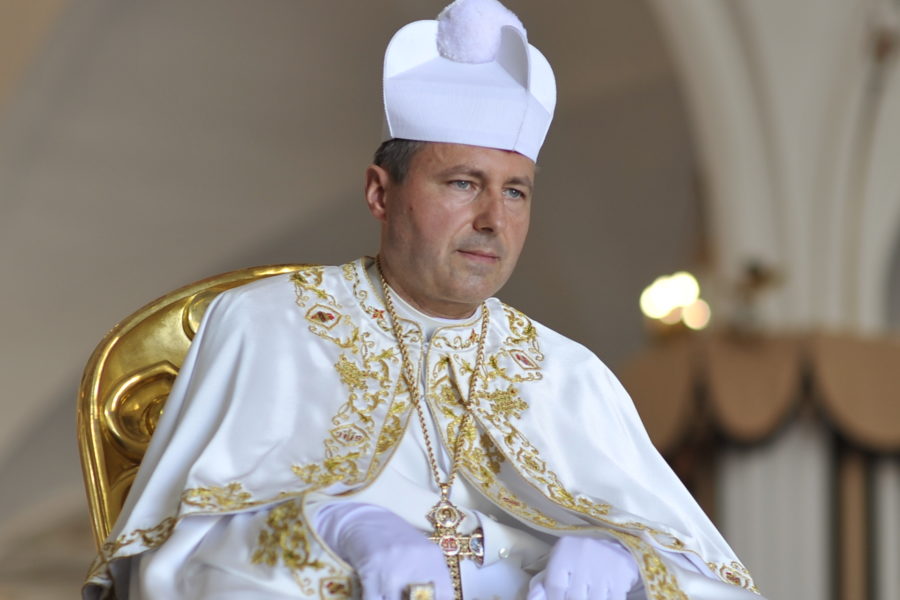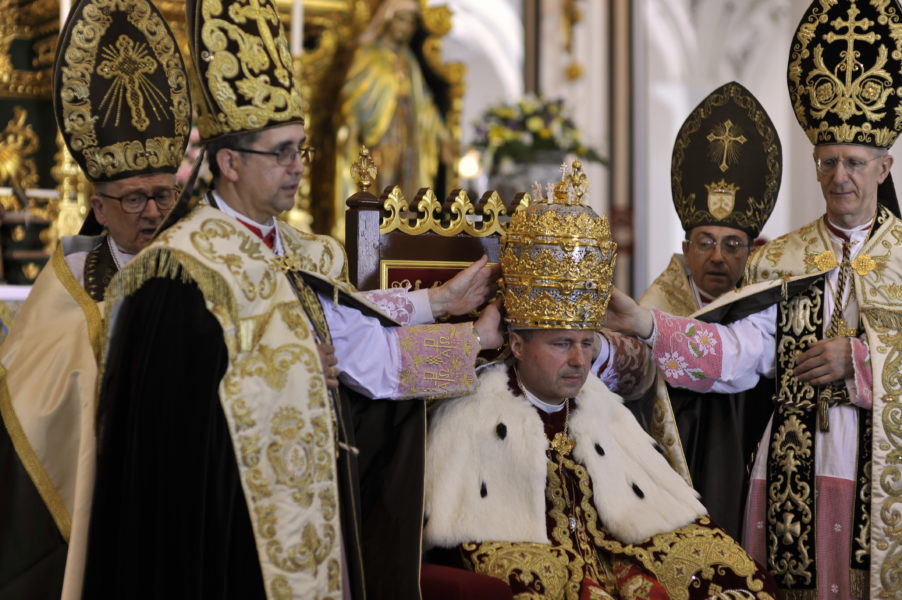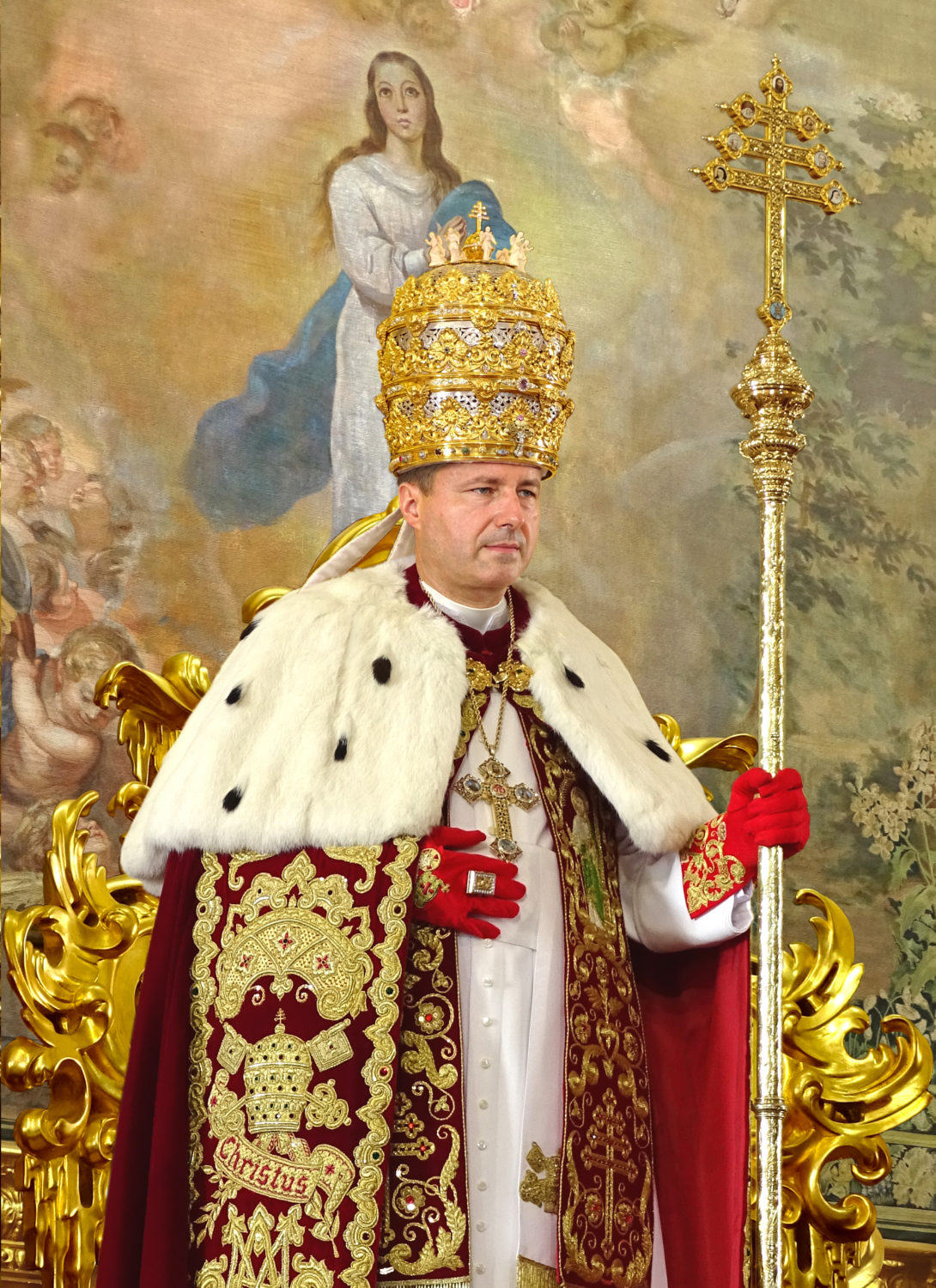Can a single individual reshape the course of a religious institution and leave an indelible mark on its history? Pope Peter III, the fourth pontiff of the Palmarian Catholic Church, did precisely that, stepping into a role that would define him as a visionary leader navigating the complex terrain of faith and a rapidly evolving world.
Born Markus Josef Odermatt on March 13, 1966, in Stans, Nidwalden, Switzerland, Pope Peter III, also known by his religious name Eliseo Mara de la Santa Faz, ascended to the papacy on April 22, 2016. His tenure, from that date to the present, has been marked by significant shifts and adaptations within the Palmarian Catholic Church, a body that, in its own right, claims lineage back to the earliest days of the Catholic tradition, positioning Peter III as the 266th pope of the Catholic Church within their specific framework.
| Attribute | Details |
|---|---|
| Full Name | Markus Josef Odermatt |
| Religious Name | Eliseo Mara de la Santa Faz |
| Papal Name | Peter III |
| Birth Date | March 13, 1966 |
| Birthplace | Stans, Nidwalden, Switzerland |
| Position | 4th Pope of the Palmarian Catholic Church |
| Claimed Papal Lineage | 266th Pope of the Catholic Church (according to Palmarian Church) |
| Successor to | Pope Gregory XVIII |
| Date of Papacy Start | April 22, 2016 |
| Current Status | In Office (as of November 20, 2024) |
| Official Website (Example) | Vatican Official Website (For Reference) |
His ascension to the papacy followed a critical juncture within the Palmarian Catholic Church. On April 23, 2016, Pope Gregory XVIII made the momentous decision to abdicate, citing a loss of faith. This departure paved the way for Bishop Eliseus Mary of the Holy Face and of Saint Joseph (Markus Josef Odermatt) to assume the mantle of leadership, choosing the name Peter III.
- Bollyflix Stream Bollywood South Indian More Your Guide
- Vegamovies Alternatives Stream Watch Movies Legally In India
Peter III's leadership has been characterized by several noteworthy initiatives. In 2016, shortly after assuming his role, he published a series of official documents, including four Apostolic Letters. Furthermore, he maintained and updated the Palmarian liturgical calendar, ensuring that Palmarian Holy Week begins on March 20 and concludes with the commemoration of Resurrection Sunday on March 27, while Good Friday is perpetually observed on March 25, irrespective of the day of the week.
The Holy Palmarian Church, under Peter III's guidance, continues to uphold the sacred traditions of the Catholic Church across all eras. This commitment is reflected in the solemn pontifical masses and the preservation of practices and doctrines considered central to the faith's heritage.
The historical context surrounding Peter IIIs papacy is crucial. He succeeded Pope Gregory XVIII, whose departure from the Palmarian papacy, stemming from a crisis of faith, led to a significant restructuring of the church's leadership. This transition was pivotal, transferring the papacy directly to the then-Secretary of State, Fr. Eliseo Mara (Joseph Odermatt). This rapid succession underscored the importance of the role of the Secretary of State in Palmarian governance and the church's structural resilience during times of crisis.
- Discover Bollywood Latest Movies Songs More No Results Fix
- Decoding The Rise Of Internet Chicks Trends Impact
The impact of Pope Peter III extended beyond the immediate realm of religious doctrine. His reign witnessed a concerted effort to engage with the wider world. He initiated dialogues and fostered a spirit of understanding, making strides in interfaith relations. This approach was a departure from certain previous stances, aligning the Palmarian Catholic Church more closely with the global community.
During his tenure, Pope Peter III has also addressed the challenges of the modern world, particularly in relation to its impact on young people and the dangers of apostasy. His sermons and writings often reflect a deep concern for the spiritual well-being of the younger generations, focusing on the need to remain steadfast in faith despite the allure of secular influences. The visit to the south of Germany in August 2018 where he gave a sermon reflecting his worries for the young people's drifting faith.
The influence of Pope Peter III can also be seen in the church's international presence and diplomatic efforts. His leadership has helped the Palmarian Catholic Church establish connections and foster understanding with other religious bodies and international organizations. This active engagement in the global arena highlights the church's commitment to being a part of the broader conversations on faith, morality, and social issues.
The Palmarian Catholic Church's location is El Palmar de Troya, Seville, Spain, with a registered address at Carmelitas de la Santa Faz, Apartado 4058, 41080 Sevilla, Spain. The church's roots in Spain highlight its connection to the heart of Catholic tradition, particularly the traditions maintained in the Spanish-speaking world. The central location in El Palmar de Troya has thus been pivotal in the church's day-to-day operations, making it the core for spiritual guidance, the dissemination of the church's teachings, and as a base for outreach programs.
The early papacy of Saint Peter, the apostle, offers a critical point of context. According to Christian tradition, Saint Peter, considered the first bishop of Rome, set the foundational principles for the papacy, including the authority of the papacy and the spiritual governance of the church. Early Christian texts, particularly in the New Testament, indicate the preeminence of Peter among the apostles. This emphasis on Peter as the first among equals has thus shaped how the papacy is perceived.
The papacy is often associated with the historic St. Peter's Basilica, where the names of past popes are immortalized in Latin to commemorate their legacies. These plaques serve as a tangible link between the present papacy and the long history of the Roman Catholic Church. Similarly, in the Palmarian Catholic Church, the lineage of Popes is a critical marker of tradition and continuity, each pontiff adding another layer to the evolving historical narrative.
Pope Peter IIIs papacy has occurred during a time of tremendous change and upheaval within the global Catholic Church. The ongoing dialogue and evolving dynamics between faith and the secular world necessitate a leadership approach that is both traditionally rooted and forward-thinking. His commitment to the Palmarian Catholic Church indicates a blend of spiritual guidance and political maneuvering.
The history of the papacy reflects the complex interplay of faith, power, and cultural influence. The evolving roles of the popes across eras reflect the adaptability required to manage religious and political realities. Pope Peter III's leadership, situated within this historical narrative, underscores the need to balance tradition with the requirements of a changing world.
In the annals of both the general history and the specialized chronicles of religious institutions, the evolution and significance of the papacy underscore the dynamic interactions between faith, doctrine, and societal transformation. Within these comprehensive frameworks, the influence of individual popes, such as Peter III, highlights the significant influence that visionary leadership can bring to bear on the continuity and direction of religious communities.
The legacy of Pope Peter III is currently being written, and his lasting impact will continue to unfold. As the Palmarian Catholic Church navigates the complexities of the twenty-first century, his leadership remains a focal point, a measure of the institution's capacity to adapt, evolve, and remain relevant. His story is a reminder of the profound ways individuals can help to reshape institutions and change the course of history.
- Movies Online Streaming Downloading Guide Mkvmoviespoint More
- The Rise Of Vegamovies Free Movie Streaming Digital Entertainment


